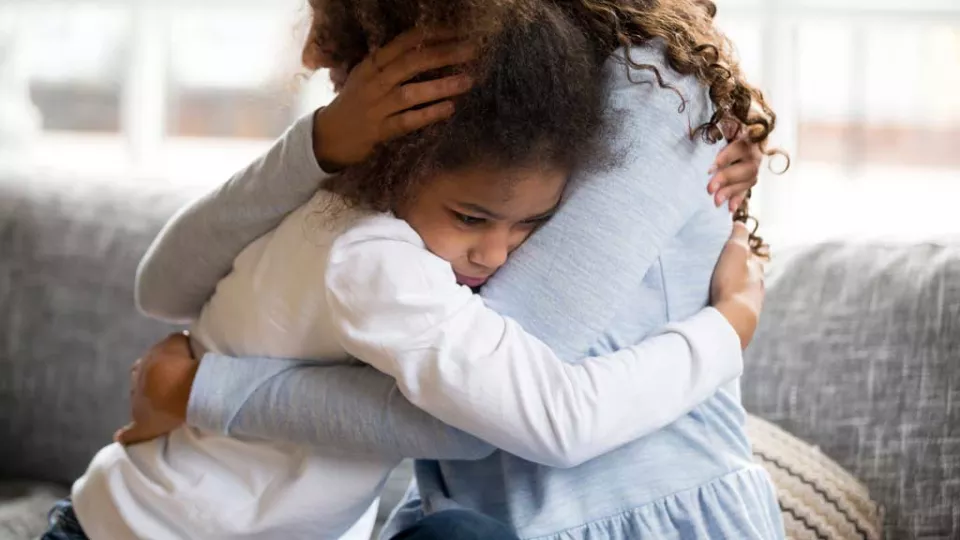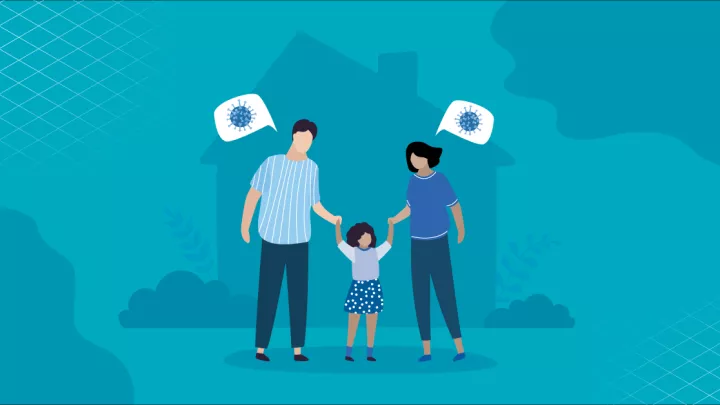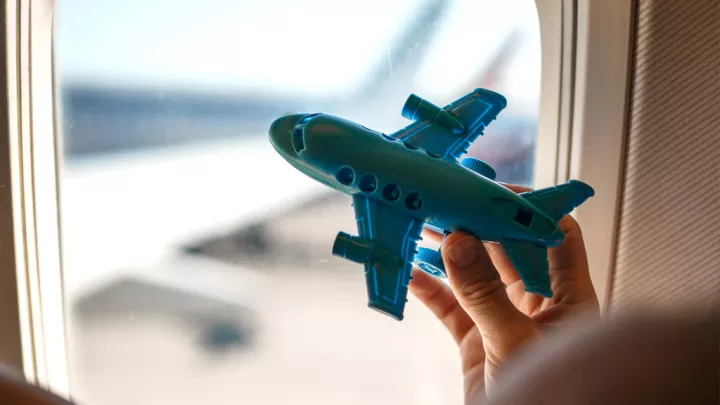
How to Tend to Kids’ Emotional Health in the Age of Coronavirus
The coronavirus pandemic has upended daily life. With schools closed, parents working at home, or suddenly unemployed, and many people under “stay at home” directives, the cadence of people’s routines have been disrupted. As the coronavirus spreads, people are understandably anxious; so how should adults caring for children tend to kids’ emotional health during such unprecedented times?
David Schonfeld, MD, Director of the National Center for School Crisis and Bereavement at Children’s Hospital Los Angeles, has some guidance for how grown-ups can talk to kids about their feelings, engage in bonding activities and help them build resilience in these challenging times.
How should adults approach discussing the current situation with kids?
Most children are aware of what's going on at some level. Even a toddler can pick up on when their parents are anxious and when the family’s schedule has changed. Adults can start by asking children who are old enough to talk about it what they understand, and then ask about what concerns they have. We can't reassure children until we know what they're worried about. Adults shouldn't assume that children’s concerns are the same concerns they have.
How should adults communicate their own feelings to kids?
If a parent is worried about what's happening, the children can pick up on that. I advise people not to hide it. Children want adults to be authentic and genuine and honest. Adults should let kids know about some of their concerns, and particularly how they’re coping with those concerns. If adults can talk with kids about how to cope with these events, they will be teaching them life skills that will help them when they face future adversity.
Of course, adults should be cautious about expressing some of the things they’re worried about, such as concerns about finances. An offhand comment to a 12-year-old child like, “The stock market just destroyed your college fund,” will only make the child worried. If that's what a parent is worried about, he or she has some time to figure that out. Adults should try and keep a positive outlook by stressing what they see as hopeful. This is a time to project to kids that there are positive actions being taken by scientists and others in charge.
What can adults do to engage kids?
This is a good time to do a creative project or watch a show together. I recommend watching things that are uplifting or funny and that can be a healthy distraction. It might be a good time to let your teenager read a comic book to you or show you something on YouTube that they're interested in, and you should show an interest in it, too. Although kids can’t do everything they want now, adults should find out something their child wants to do and help the child do it.
Can you describe some coping techniques kids and parents can use?
Children need to develop a toolkit of coping techniques to deal with distress and anxiety. These are some ways to support them:
- Talk to kids. Sharing feelings with someone who cares can be helpful.
- Write about feelings or use art to express emotions.
- Use mindfulness to focus and keep calm. These techniques can be learned by children.
- Exercise at home or in your own yard.
Parents often try to protect children, but the bottom line is that kids need to learn how to take ownership for their own health—and that can start at a young age. Adults should resist the temptation to simply tell children exactly what to do. Grown-ups can tell kids what's important to do, then let them figure out how they wish to do it. With very young children, it may be that they get to pick which soap they're going to use to wash their hands, or which song to sing while washing their hands. Let kids take responsibility for themselves to the extent that they can manage and that's developmentally appropriate.
What should I do if my child is having behavioral issues during this time?
Children often think about themselves first when they're in a crisis and they may become very self-centered. This is expected. Allow children to express when they're feeling distressed about something they're going to miss like a birthday party or a soccer game. Allow children to experience and express that distress and don't judge it.
One of the things that's so unsettling about a crisis like the COVID-19 pandemic is that people don't know what's going to happen. That sense of unpredictability makes people feel very vulnerable. For kids especially, I suggest creating some sense of predictability around things adults can control such as the schedule at home. You may not be able to tell kids when they're going to be able to go to the playground or to friend’s house, but you can tell them what time dinner will be. You can tell them what time you're going to sit down and play a board game or read a story together. Try to keep to that kind of schedule to the extent that’s possible because it's reassuring to children.
How can adults manage sheltering in place with their kids?
I've heard people talk about the stress caused being together in one place. Everyone needs to recognize that a lot of the stress is coming from the context around the situation: This isn’t a snow day or a vacation with family. People are concerned and they are trying to do a lot of things like continuing school remotely or working from home, which places another layer of stress on families.
People should set reasonable expectations: The goal isn't to have a lot fun and or to be the most productive in school or at work. The goal is to figure out how to balance all the things people are being asked to do. This is a time when everyone has to provide comfort to each other and sometimes that means compromising on some of the gains that we expect, such as academic progress in kids. As long as adults are helping kids stay secure and comfortable and confident, that will put them in the best position to make gains in the future.


